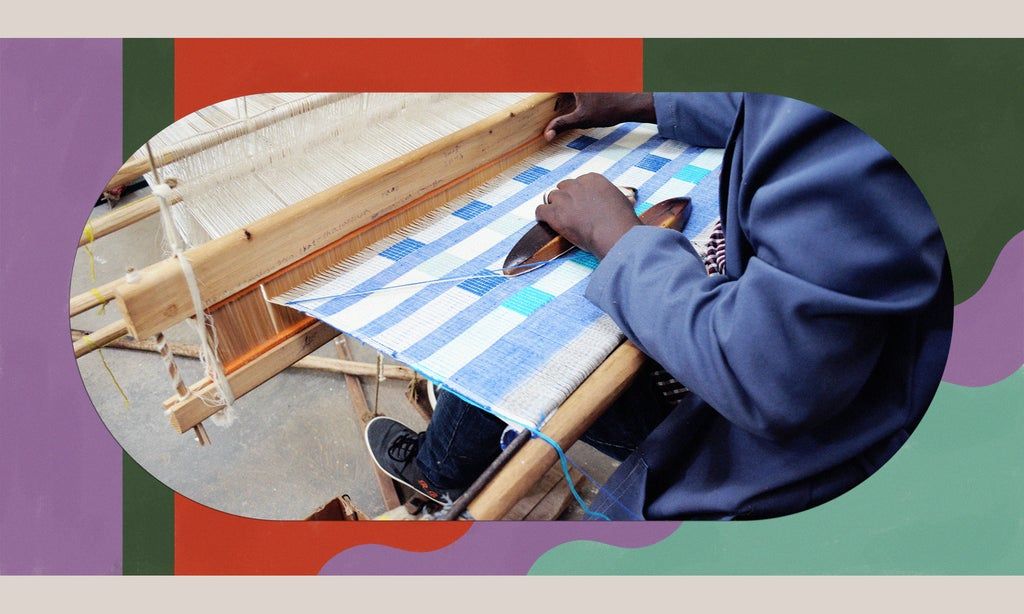Africa-Press Ethiopia
Black women have long been overlooked and underserved across all industries, an injustice that is finally being brought to the forefront, with Black women leading the movement against racial inequality. To honor just how truly essential Black women are, Unbothered has partnered with Target to share the stories of those who are fighting for inclusivity, challenging stigmas, and prioritizing mental health — stories that shed light on their incredible strength, ambition, and humanity.
For Hana Getachew, the Ethiopian-American founder of Bolé Road Textiles, a love of textiles can be traced back to childhood, stemming from one garment in particular: her mother’s dress for the Mels, an Ethiopian tradition that takes place during a wedding ceremony. She remembers it in excruciating detail — from the olive green shade and the waist-cinching A-line silhouette, right down to the gilded threadwork and golden daisies.“We’d always take it out and play with it. We were obsessed with it,” Getachew says. There were others, too, that she loved: dresses from friends and family, brought when they visited from Ethiopia. “In Ethiopia, weavers would come up with non-traditional syncopated patterns, with elements of symmetry and diamond designs. That has stayed with me, and I put a lot of it into my work today.”
Getachew speaks about her career as two different lives: her life as an interior designer (before she launched Bolé Road), and her life after. It’s the latter — as the mastermind behind the home decor brand inspired by her own connections to family and the African diaspora — that has granted her the liberty to experiment and express herself genuinely through a world enriched in color, shapes, textures, and patterns.
“I knew I was a good interior designer, but I felt like anyone could do it. It wasn’t unique to me; I wanted to find something that is essential to my soul,” she says about working at an architecture firm for almost 11 years, decorating commercial interiors and offices. “One day, my coworker told me her friend quit her full-time job to work on her pillow business. And I was like, Yes, that’s what I’m gonna do.”
The concept for Bolé Road lived in her mind for almost eight years before she found the courage to execute it. In 2008, the same year Getachew’s ideas were growing, everyone around her was losing their jobs, which led many of them to dream-chase and become entrepreneurs. “The maker movement,” she proclaims. “I’m very risk-averse, which is not a good trait as an entrepreneur. That’s why I didn’t leap into this, but when I saw a whole movement happening, I thought maybe I could do this too.” Getachew left her career in interior design in 2014, but spent years prior to that preparing for the transition. She took free business classes at NYC Small Business Services and scouted artisans through word of mouth, the internet, and asking around in Ethiopia. A year later, she officially launched her brand on the same day as the Brooklyn Designs annual show. (The best piece of advice she received: “Just start, don’t overthink it.”)
“It was an amazing event, and it was an incredible way to launch, rather than hit publish on a website and wait,” she says, likening the experience to a graduation, being surrounded by family, friends, and former coworkers. “Those kinds of events are really great for understanding how people respond to [your product] and getting your first round of feedback.”
Everything about Bolé Road revolves around intention, identity, and gratitude to the heritage and community that supported Getachew most, from the colors and patterns inspired by Ethiopian landscapes to the name of the company.
“I lived in Bole [a neighborhood in Addis Ababa, the capital of Ethiopia] with my family until we moved to Canada when I was three, and Bole Road, which used to be a charming little street, is now a major thoroughfare,” says Getachew, who emphasizes the significance of this road, which has marked pivotal journeys she’s made in her life (the first being when she left and the second being when she returned to visit 20 years later). “The Admas collection is inspired by the mountainscapes of Ethiopia and the color palette reflects the misty gradations of sunrises and sunsets from my memory. It’s art based off my lived experience.”






